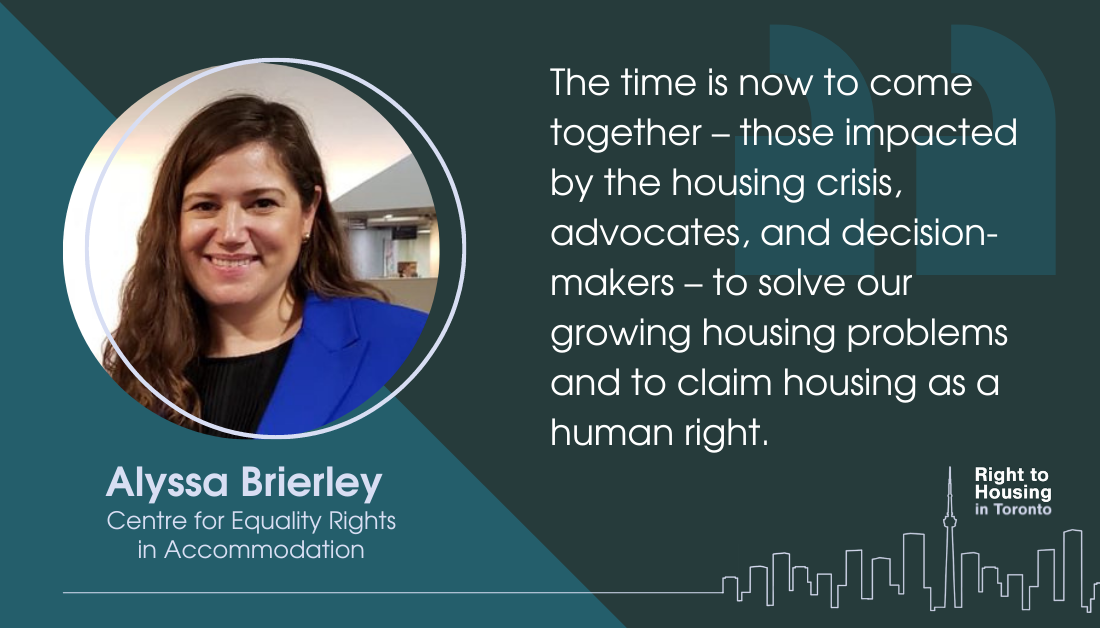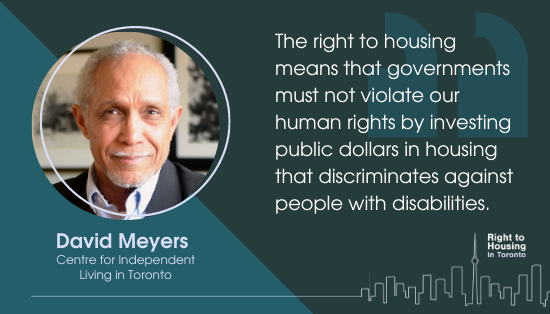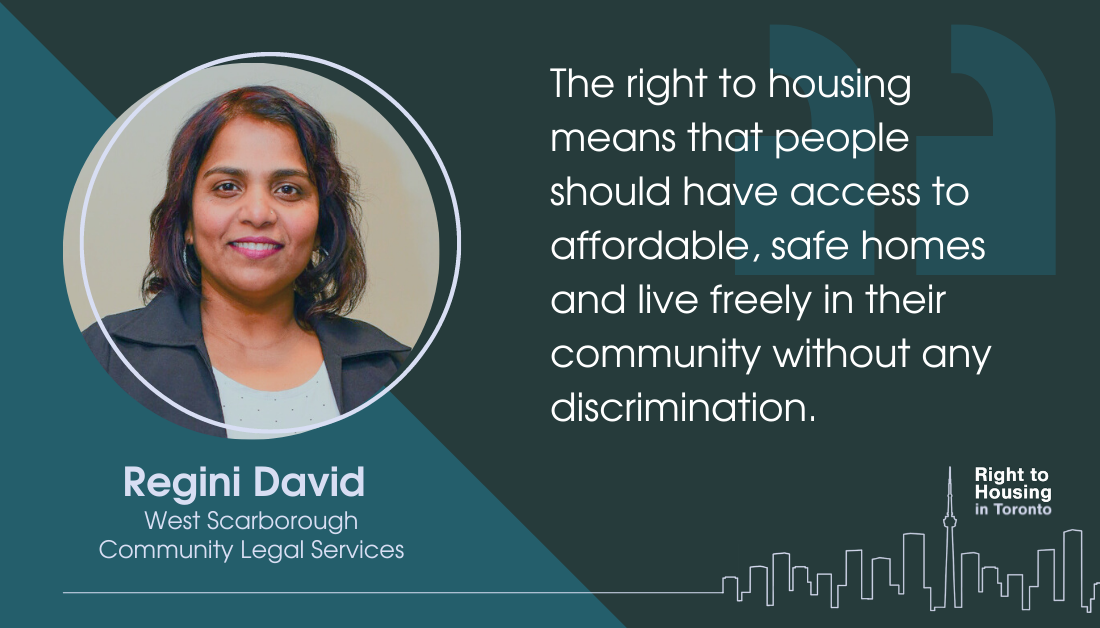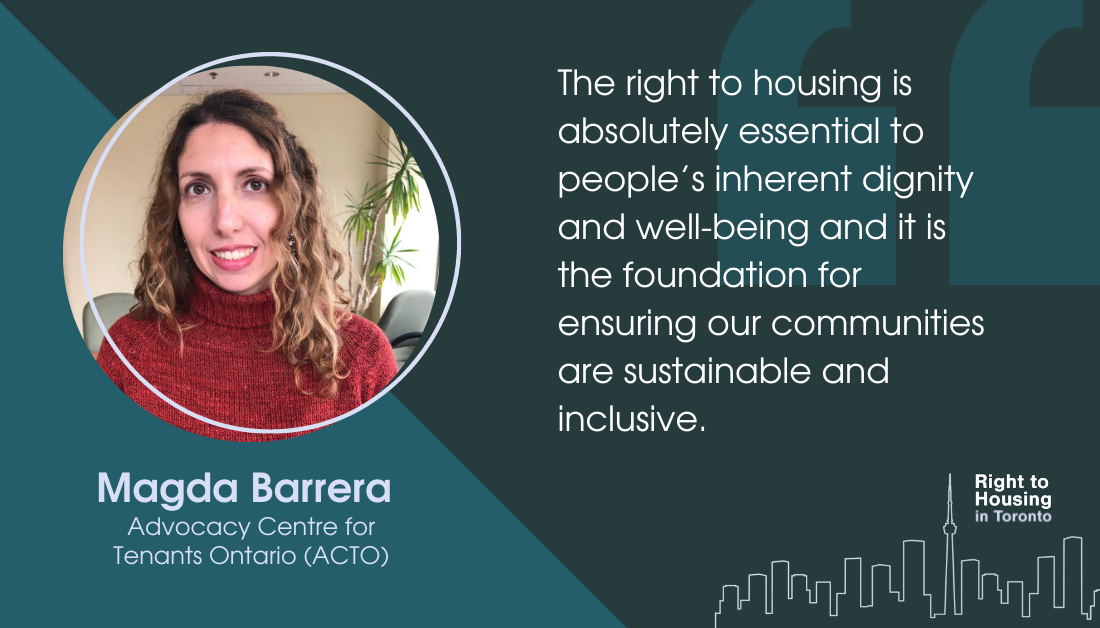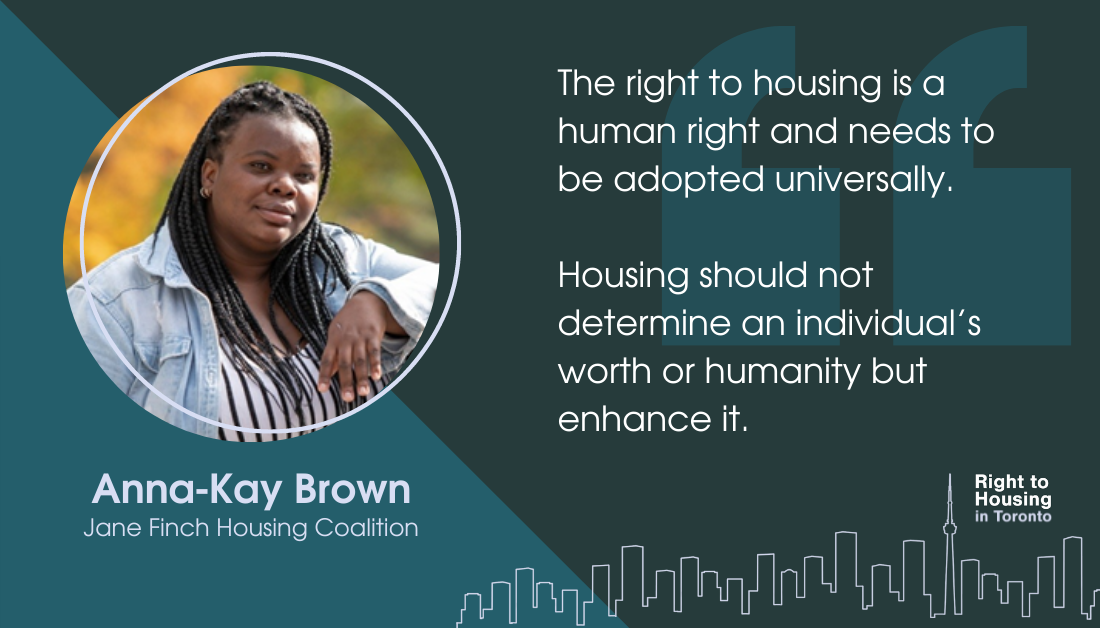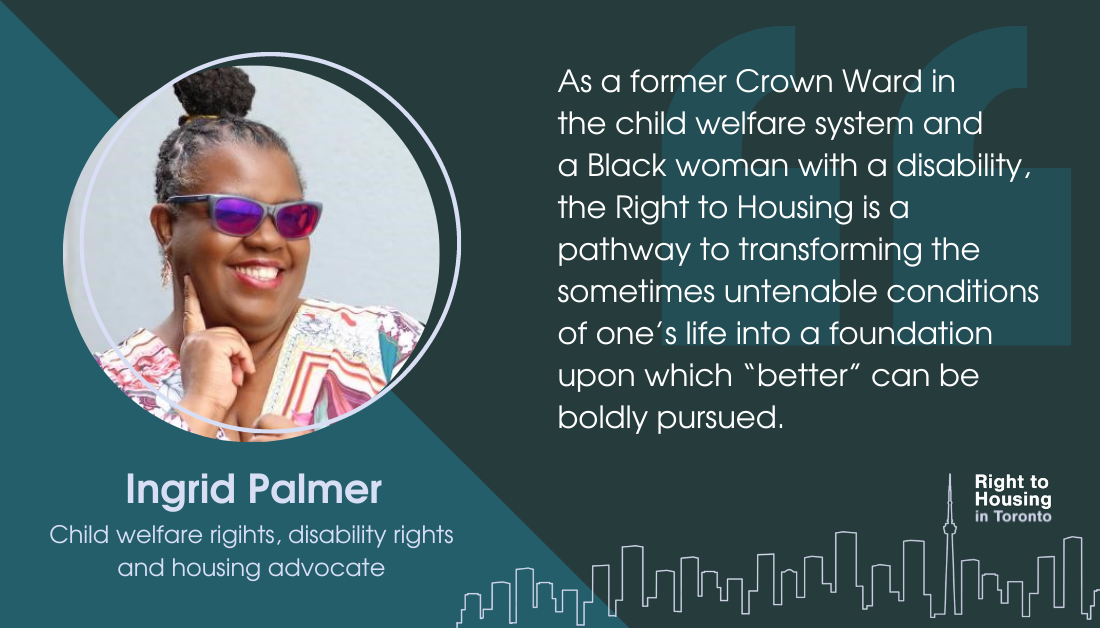What does the right to housing mean to you?
Housing is a human right, and every person should have a place to call home where they are able to live with dignity and contribute to the decision-making processes of the community that they are part of. Housing must be safe, adequate, accessible, and affordable to all, and Canada has committed to advance the right to housing. Yet, too many people are unable to access housing that’s affordable, well-maintained and safe. The time is now to come together – those impacted by the housing crisis, advocates, and decision-makers – to solve our growing housing problems and to claim housing as a human right.
What is the #1 thing that Toronto City Council must do to advance the right to housing next year?
The City of Toronto committed to a rights-based 10-year housing plan. The City must engage with impacted communities, stakeholders, and communities across the city on various issues that will work toward achieving its goal to realize the right to housing for all. It must introduce housing policies that will preserve the affordable housing we already have, and to make these homes safe and habitable places to live. It must also work toward increasing the affordable housing stock for people with low to moderate incomes, and increasing non-profit housing solutions to curb the growing financialization of housing. These policies must be planned, developed, and executed through open, transparent, and participatory processes. We need the City of Toronto to commit to these solutions now more than ever as Toronto’s housing situation has worsened during the COVID-19 pandemic, and further exposed the increasing inequities in our communities.

